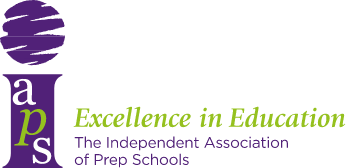What is success in our schools and how should we measure it?

The question of how to measure success in life is one typically left to philosophy classes or late nights at the bar. It is a complex issue. But how should schools measure their success? Is it the all important ISI outcomes? Is it data driven, by elements such as Progress in English/Maths Tests from our friends at GL Assessment? Or should we spend more time measuring psychometric elements and considering pupil attitudes to self and study? The concept of success is ultimately abstract, but I do have a personal view of what I feel success looks like.
Any broad vision of success in schools is undoubtedly undermined by the politicisation of education and the need for accountability, which has driven narrow measurable outcomes. Evidence based decision making has been singled out as the only true way to measure success, especially when the media needs quick, easily digestible chunks to satiate its audience’s need for a simple answer. The NHS, government, business and now education are driven by data, but this is a dangerous road for education to go down with blinkers on. I would not suggest for one moment that data is pointless - it is clearly useful when married with effective strategies to aid intervention and boost outcomes; but I would suggest that an oversimplified view of what it represents is very dangerous indeed. Success is clearly more than standardised numbers and grades on a page. These numbers help us to understand, but they are not the end point in themselves. Education has another set of less easily measurable outcomes that are as, if not more important than traditional measures.
The modern world needs modern thinkers. Increasingly we are seeing the need for students to master higher-order thinking skills so that they are able to see the relationships among seemingly diverse concepts. These higher order abilities (recall, analysis, comparison, inference, and evaluation) are central to success in the modern workplace and beyond. Crucially, they are the kinds of skills that are not necessarily tracked by any current battery of tests. Teamwork, collaboration, and moral character are critical too - but again, standardised testing cannot track these either. Businesses are always looking for employees with people  skills - the ability for a young adult to simply get along with others is priceless . . . but it’s not
skills - the ability for a young adult to simply get along with others is priceless . . . but it’s not  measured. Angela Duckworth’s 2016 book ‘Grit: The Power of Passion and Perseverance altered how many professionals in our field consider non-cognitive skills. Her book considered highly successful people in fields such as music, professional football, and the military, and it examined what makes these elite folks tick. She concluded that characteristics like passion for the subject matter and a willingness to work hard were more predictive of success than scores of raw intelligence or natural ability. Grit made the difference. So, we are safe to assume that success goes well beyond what we can measure. However, we can encourage these elements by creating a community that values these traits and recognises these as desirable and important. We may never be able to capture this ‘grit’, but do we really need to if we give our pupils the chances to develop it?
measured. Angela Duckworth’s 2016 book ‘Grit: The Power of Passion and Perseverance altered how many professionals in our field consider non-cognitive skills. Her book considered highly successful people in fields such as music, professional football, and the military, and it examined what makes these elite folks tick. She concluded that characteristics like passion for the subject matter and a willingness to work hard were more predictive of success than scores of raw intelligence or natural ability. Grit made the difference. So, we are safe to assume that success goes well beyond what we can measure. However, we can encourage these elements by creating a community that values these traits and recognises these as desirable and important. We may never be able to capture this ‘grit’, but do we really need to if we give our pupils the chances to develop it?
Success within education can never, will never and should never be allocated a simple number. The notion of what actual success is would suggest that such an approach is flawed. So much of what success is at schools is naturally resistant to being measured, and if you spend too long trying you may actually disrupt the very thing you are trying to measure. Nevertheless, we do need indicators and data. Such things are vital tools to help us in our overall desire to provide the best possible provision. Success is not static, it is dynamic, and it changes over time, along with our children. I would unequivocally suggest that over-eager measurement-based systems to support accountability in our schools has had a damaging and pernicious impact upon what we consider to be success, and this has narrowed provision in some settings. We need to focus on all the other areas that we have identified as areas of success. Schools can make a life-changing difference in supporting the strengths we want to develop in every child. We, as a community, need to recognise a wide range of important dimensions that lead to success in schools: academic achievement, physical and mental health, social-emotional development, creativity and innovation, and democracy and citizenship, being just a few. All schools need to be well placed to fulfil this vision and it is precisely this outlook that undoubtedly motivates so many independent settings.
James Hadfield, Deputy Head
Mowden Hall School



